A Misunderstood Phrase
Justine Larbalestier has a post up called Write What You Know, NOT! in which she claims that the old adage "write what you know" is "rubbish."
I don't think the phrase "write what you know" is rubbish, at all. It's misunderstood, is what it is.
When I was a teenager, I hated being told to write what I knew. It made me incredibly angry. I lived on a small, rural farm, and I most definitely did not want to have to write about cleaning the barn or feeding the heifers or whatever the hell my father had out in the second barn at any particular time. I felt the teachers were trying to control me when they told me to write what I knew. They were keeping me from writing the mysteries, spy stories, and comedies I liked to read. My mother always told us, "The whole world can't be wrong and you right." I can distinctly remember thinking that I would show everyone that they were wrong and I was right and that I could be a writer without having to write what I knew.
Fast forward twenty freaking years, by which point I had published two short stories and one essay. I caught the attention of an editor at G.P. Putnam's Sons and began working on a book of short stories about aliens. The basic premise of the collection involved aliens dropping in on two suburban brothers who were left to deal with them on their own because their mother was too busy to notice there was anything unusual going on.
I had to come up with material for these stories. I had given my older son a birthday party with an Olympic Games theme. So I did a short story about a birthday party with an Olympic Games theme and had an alien crash it. He was wearing an outfit based on one my younger son wore when he was a toddler. The older boy did a science fair project on pulleys, so pulleys figured prominently in another story about an alien. I did a story about a dinosaur and an alien because the younger boy had a pair of shorts with dinosaurs printed on them that I just loved. (I did have a thing for his clothes, didn't I?) I used the neighbor's dog in a story. We had friends who were musicians, so I made the parents musicians. My husband plays the guitar, so that was their instrument.
After the book was published, an acquaintance said to me, "Loved the book. It was so real. It was about things that really happen." A lightbulb literally went off over my head. I didn't think the poor woman believed in aliens. I knew that she was talking about all the details that came from my life as a suburban mom. I thought, Oh. That's what they meant.
I realized in a blinding flash of light that writing what you know means writers have the option of turning to their lives for the details they need to describe characters and settings and to come up with plot points. That's dramatically different from having to write only about what has actually happened to you. Writers' lives aren't strait jackets. Nobody is holding a gun to their heads forcing them to write about that babysitting experience in 1986, or their grandmother's wake (though I do have a pretty good wake story) in '91, or every up and down in their marriage.
But when you need a town for a setting, being able to use one you know sure beats having to come up with one from scratch. And it can end up sounding a lot more realistic, too, because it's based on something real. A school building you remember, the camp your uncle owned, the house you lived in when you were in first and second grade, jobs your family members have held, the vicious dog that used to live next door, the food you ate on vacation...the barn those heifers you had to feed were kept in...all these things are things you know and can use. Any way you want.
Larbalestier talks about doing research for books. When you do research, that becomes something you know. You are then writing what you know.
My life is so intricately woven into my books that someone reading them could end up knowing so much about me it's frightening. And, yet, I've written two books about aliens and am working on a third. I've written about people who have lived a life dedicated to environmentalism to a degree I can only imagine. I've written about a lot of boys. The books aren't about me.
Because I still hate the expression "write what you know" I prefer to think of what I do as writing who I am. Whatever you want to call it, it has never kept me from writing about anything I wanted to write about. On the contrary, it has made all my writing possible.
Labels: writing process
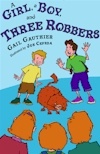
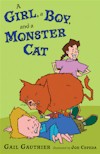
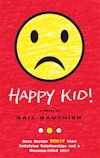
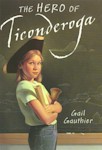
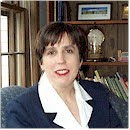



3 Comments:
I really enjoyed this post. It was cool to share in your experience of discovering this writing truth. Isn't it funny how it's all a matter of perspective?
Thanks for this, Gail! It also took me a ridiculously long time to figure out that this is what "they" meant by "write what you know." In high school and college, I planned to have a Very Adventurous Life so that I would have more writing options, and I cultivated personal tragedy like a Russian novelist.
...And now I no longer write fiction or poetry, just blog entries. So I guess I'm writing about my life all the time after all!
I tell an expanded version of the story in this post when I visit schools, including examples from my books of how I've integrated real life into my fiction. And I have slides!
I keep waiting for some kid to say something like, "And exactly how old were you when you figured this out? It took you how long?"
Post a Comment
<< Home